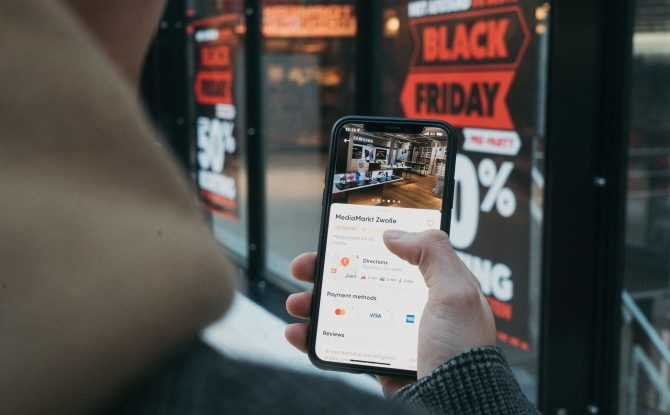While it is undeniable that smartphones have surpassed other devices for online shopping, the question remains: Is a mobile app worthwhile for shop owners, or does a responsive design meet customer needs just as well? According to a survey, 85 percent of respondents believe that the mobile version of a website should look the same or even better than its desktop version (Source: sweor.com). Providing a poor user experience is not expected to encourage customers to return, making a mobile-friendly online shop essential. However, for an optimal user experience, ease of use and fast loading times are crucial, which responsive designs often struggle to achieve since they merely adapt desktop content for mobile devices. In contrast, mobile apps are specifically designed and optimized for smartphone use, resulting in significantly better performance.
#3
Mobile Apps Offer Competitive Advantages
The improved performance of mobile apps compared to responsive designs forms the basis for our third point on this list, as it generates distinct competitive advantages. Customers appreciate high loading speeds and user-friendly environments, leading to lower bounce rates and higher conversion rates. The latter is on average 130 percent higher with mobile apps, and potential customers view 286 percent more pages per session (Source: buildfire.com). This presents significant cross-selling potential, increasing not only the number of sales but also the average order value.
#4
A Mobile Channel Enables Personalized Shopping Experiences
63 percent of customers desire a personalized shopping experience (Source: buildfire.com). A mobile app makes it much easier to fulfill this desire, as it allows tracking of search histories and orders, among other things. While this is possible on mobile websites as well, tracking often requires user login. User behavior information can be used, for example, to send personalized push notifications within the app, increasing customer engagement, which is essential for the success of marketing efforts.
#5
Mobile Apps Reduce Abandonment Rates
Cart abandonment is one of the most crucial KPIs in e-commerce – and one of the most frustrating. After all, customers who have already placed products in their carts are just a few clicks away from completing an order. It becomes particularly frustrating when conversions ultimately do not occur. Besides monetary reasons, such as shipping costs, user-friendliness also influences cart abandonment rates. Mobile apps minimize the risk of abandonment by, for instance, storing entered information in the app's settings. Other features, like customer login and/or order confirmation via fingerprint, further enhance convenience. Additionally, apps allow for easy integration of alternative payment methods tailored to mobile devices, such as Google Pay and Apple Pay.
#6
Customer Support Is Improved
Excellent customer support is a vital pillar, especially for building repeat customers. Mobile apps open up new possibilities here, such as integrating live chats, chatbots, or video chats. It is also possible to implement live order tracking. Although this option exists for responsive websites, live tracking is resource-intensive and not easily integrated into the mobile view without compromising performance.
#7
Remarketing is simplified
Acquiring new customers is usually much more expensive than re-engaging existing ones due to high marketing costs. Once installed, mobile apps greatly simplify remarketing efforts. Customers often download the mobile app with the intention of making future purchases from the respective shop. Statistically, over a third of all app users make 11 or more visits after downloading the app (Source: buildfire.com). Even if that is not the case, the app can be used to send notifications to reactivate past customers. Since the majority of smartphone users keep their devices switched on, this method is typically more effective than, for instance, email marketing through newsletters.


